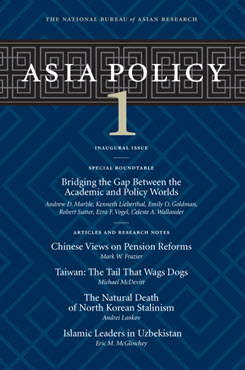The Natural Death of North Korean Stalinism
This report analyzes the sweeping changes that have taken place in North Korea over the past fifteen years, evaluates the impact these changes will likely have on the fate of the state, and offers implications for U.S. policy.
EXECUTIVE SUMMARY
MAIN ARGUMENT
The last fifteen years have witnessed the gradual wearing away of North Korean Stalinism. The collapse of the centrally planned economy has resulted in the unprecedented revival of small business. The corruption and gradual disintegration of the bureaucracy have led to considerable relaxation of police control. North Korea’s self-imposed information blockade has been broken, and uncensored information about the outside world is flowing in. Thus, while North Korea remains under authoritarian rule, the polity can no longer be described as “Stalinist.”
POLICY IMPLICATIONS
- Encouraging the gradual disintegration of Stalinism would help make North Korea more predictable and would pave the way for a democratic transition in the future.
- The new situation has created opportunities to communicate with common North Koreans, opportunities that can be exploited by the outside world.
- Large-scale economic ventures spearheaded by the United States and other foreign businesses in the North would likely only generate income for the elite and could even support nuclear development and other military projects; small-scale activities, on the other hand, would help engage the North Korean people and expose them to the outside world.
About Asia Policy
Asia Policy is a peer-reviewed scholarly journal presenting policy-relevant academic research on the Asia-Pacific that draws clear and concise conclusions useful to today’s policymakers. Asia Policy is published quarterly in January, April, July, and October and accepts submissions on a rolling basis. Learn more


